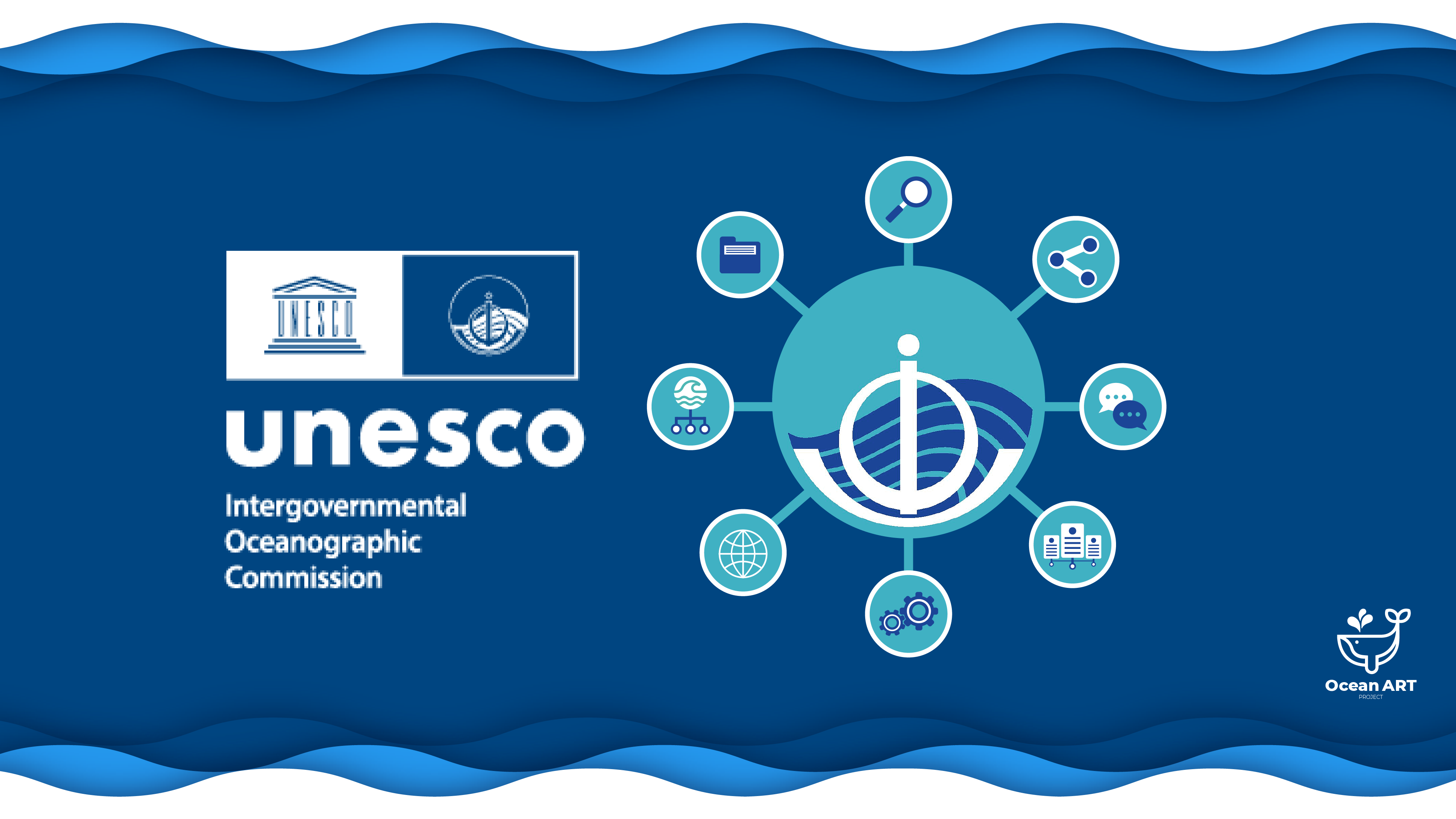
Tras la Segunda Guerra Mundial, algunos países decidieron compartir sus conocimientos oceanográficos con todas las naciones del mundo. Sin embargo, este fenómeno se dio finalmente en la década de 1960. De esta manera, se creó el primer órgano encargado de reforzar la cooperación en el marco de las ciencias del mar: la Comisión Oceanográfica Intergubernamental de la UNESCO.
Desde 1959 hasta 1965, 45 navíos recorrieron el Océano Índico persiguiendo la exploración oceanográfica y obteniendo como resultado la publicación de atlas, mapas y estudios que permitieron cierta innovación en conocimientos de geología, geofísica y biología. Esta Expedición Internacional del Océano Índico (IIOE) fue la mayor iniciativa hasta entonces en el ámbito oceanográfico, enarbolando pabellones de 14 naciones.
Hasta que finalmente se creó la COI, se recorrió un largo camino: en 1946, India propuso la creación de un instituto de oceanografía y pesca que estuviera dedicado en exclusiva al Océano Índico; en 1952, Japón presentó un proyecto para conseguir un cierto compromiso por parte de la UNESCO en la promoción de la cooperación internacional en el ámbito de la oceanografía. La apertura de este proyecto tuvo lugar finalmente en 1954, cuando Japón volvió a proponer el lanzamiento de un programa de ciencias del mar.
A su vez, el Año Geofísico Internacional (1957-1958) desempeñó un papel fundamental en la impulsión de la creación de la COI.
Finalmente, en julio de 1960, la UNESCO organizó una conferencia oceanográfica en Copenhague (Dinamarca). Un total de 35 países y representantes de diversas organizaciones internacionales recomendaron la creación de un órgano intergubernamental que promoviera y facilitara la investigación científica del océano. En diciembre de 1960, la propuesta fue aprobada por la Conferencia General.
Durante sus 60 años, la Comisión cuenta, actualmente, con 150 Estados Miembros, conservando intacto el objetivo principal de su creación: fomentar la investigación y divulgación del conocimiento sobre las cuestiones relacionadas con la oceanografía.
Esta Comisión y sus proyectos pioneros en relación a la investigación, ha motivado a otras regiones para seguir este modelo, como puede ser el Caribe, el Atlántico Nordeste y el Mediterráneo.
La COI también ha encabezado actividades colmo la declaración del Decenio Internacional de Exploración Oceánica (1871-1980) y es considerada agencia líder en la proclamación de 2021-2030 como Decenio de las Ciencias Oceánicas para el Desarrollo Sostenible.
__
INTERGOVERNMENTAL OCEANOGRAPHIC COMMISSION OF UNESCO
After World War II, some countries decided to share their oceanographic knowledge with all the nations of the world. However, this phenomenon finally took place in the 1960s. This led to the creation of the first body responsible for strengthening cooperation in marine science: the Intergovernmental Oceanographic Commission of UNESCO.
From 1959 to 1965, 45 ships cruised the Indian Ocean in pursuit of oceanographic exploration, resulting in the publication of atlases, maps and studies that allowed for some innovation in geological, geophysical and biological knowledge. This International Indian Ocean Expedition (IIOE) was the largest oceanographic initiative to date, flying the flags of 14 nations.
Until the IOC was finally established, it was a long road: in 1946, India proposed the creation of an institute of oceanography and fisheries dedicated exclusively to the Indian Ocean; in 1952, Japan presented a project to obtain a certain commitment from UNESCO to promote international cooperation in the field of oceanography. The opening of this project finally took place in 1954, when Japan again proposed the launching of a marine science program.
In turn, the International Geophysical Year (1957-1958) played a key role in driving the creation of the IOC.
Finally, in July 1960, UNESCO organized an oceanographic conference in Copenhagen, Denmark. A total of 35 countries and representatives of various international organizations recommended the creation of an intergovernmental body to promote and facilitate ocean scientific research. In December 1960, the proposal was approved by the General Conference.
During its 60 years, the Commission now has 150 Member States, keeping intact the main objective of its creation: to promote research and dissemination of knowledge on issues related to oceanography.
This Commission and its pioneering research projects have motivated other regions to follow this model, such as the Caribbean, the Northeast Atlantic and the Mediterranean.
The IOC has also spearheaded activities such as the declaration of the International Decade of Ocean Exploration (1871-1980) and is considered a leading agency in the proclamation of 2021-2030 as the Decade of Ocean Sciences for Sustainable Development.
__

